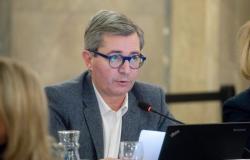The week of prayer for Christian unity is open!
But what unit are we talking about? What kind of unity can Christians hope for? Would it be a question, as leaders do, of calling for the unity of a people? Would it be a question, like army leaders, of reconquering supposedly lost territory?
In a world in transition like ours, marked by the uncertainty of its future, many today speak of unity… We bomb countries, we invade states in the name of unity. We imprison and expel in the name of cultural unity. We murder and rape in the name of ethnic unity. These are indeed forces that we mobilize to defend the unity of this or that nation. From political platforms to football stadiums, when, hand on heart, we shout in unison “all together!” “, it is always a question of uniting against designated adversaries. This conquering unity, carried by the conviction of having for oneself the absolute truth and the meaning of history, is in reality only an identity withdrawal nourished by the fear of the other. This unity does not bring us together in the same body, it dismembers us into different irreconcilable camps.
It’s not a unit against that we celebrate this morning, it is a unity pour – an unconditionally hospital unit with a universal dimension.
And the literary composition that the evangelist John imagines around the character of Thomas can help us understand better. The story begins with a mistake. Thomas missed the first appearance of the resurrected Christ. He wasn’t there. At the beginning of the community of Christ’s disciples, the Twelve were not twelve. Not even eleven, since Judas was also missing. In other words, from the beginning, the Church was marked with the seal of deficiency and disunity. The original purity of the unity of the disciples does not exist, John tells us. The Christian faith is no less proclaimed. This small, imperfect ecclesial group forcefully proclaims the Easter Gospel and affirms it with one voice: “We have seen the Lord.” Thomas is their first listener. His companions said to him: He who was crucified lives. The Easter faith is proclaimed, but it is not believed. Thomas the dissident refuses to rely on the word proclaimed by the Church. A unanimous confession of faith is not enough to convince.
For eight days, Thomas will challenge their arguments. And it is the Church caught in flagrante delicto of impotence: the Church cannot convince, it cannot transmit the faith. She cannot, even united, faire believe, simply because she does not hold this believe. The Church, our Churches, are not necessary conditions for the Christian faith because we do not possess what we believe. The unity that we celebrate this morning cannot therefore be a demonstration of ecclesial force. It is not a conquering Church that John tells us about, it is a Church which, in the indifference of some and the rejection of others, tirelessly proclaims the One in whom it places its trust. This Church is not concerned with building a model of unity, but with being, in this world, a place of fidelity to the living God. By tirelessly proclaiming its faith, the assembly of disciples opens itself to the presence of God. Our assembly this morning, in the diversity of its cultures and faiths, has no other ambition than to be an opportunity given to others to believe what we cannot make people believe.
Thomas sets his conditions: to believe, he wants to see and touch. Note that Thomas does not refuse to believe, he wants to believe in his own waythat his belief in the Living God is validated according to the criteria of the world. And John warns us: it is not so much the refusal to believe that threatens us, it is our pretension to want to impose our conditions on God. Now, John tells us, to believe conditionally is always not to believe, it is to submit to the world and to the idols that it creates. To believe conditionally is to refuse the gift that comes from elsewhere, the word that comes to us and is not ours.
-That day, Thomas became a man of faith. He sees and he believes. Without touching anything, Thomas’ existence opens to the transcendence that manifests itself to him. Reversed internally, he experiences, in his life, the presence of the Living God: it is not the testimonies that we give to God that make us live, it is God himself. Thomas now knows it having experienced it in him: he recognizes his Lord and his God. Through Jesus, Thomas recognizes the Father. Son and Father in communion, the unity of the Father and the Son is offered to the disciple.
The unity of the disciples of yesterday and today proceeds from the God who is revealed to us by the Son, and from his desire to make us participants in the life that he is. The unity that we have to experience does not take its origin from the world. It is given to us from the unity of the Father and the Son, from their perfect communion, from this love of the Father for the Son and of the Son for his disciples – it is by loving with this love, by living from this communion -there that we will witness together to the presence of the Living God.
Brothers and sisters, the unity that we celebrate this morning, we do not have to build it but to welcome it. God, the source of this unity, approaches each and every one of us – freely, graciously, directly – the doors that our religions strive to lock, he crosses them. He is the first to advance towards us, he engages in his Creation and by engaging, he engages us. In communion with Him, we will receive as a gift what nourishes our efforts of dialogue, meetings and mutual recognition – showing the community that God calls to Himself – a community that is necessarily unidentifiable, unlimited, hospitable, plural and universal, to the size of humanity that God himself came to love to the point of death.
Brothers and sisters, the week of prayer for Christian unity is open, let us rejoice in the unity given from above, and that following Thomas, we become men and women of faith by proclaiming relentlessly, in this world of death, the presence of the Living God!
Amen





